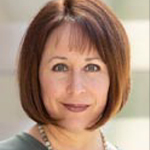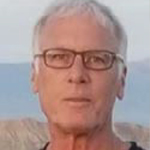Originally published in the Fall 2020 Edition of The Toronto Manager
Living is a form of not being sure, not knowing what next or how. The moment you know-how, you begin to die a little. The artist never entirely knows. We guess. We may be wrong, but we take leap after leap in the dark. – Agnes De Mille
Are you ready, willing, and able to engage, improvise, and be mindful?
Managers have been inundated with a plethora of challenges ranging from managing remotely, managing uncertainty, and managing themselves during the pandemic. As we navigate through a frightening amount of turbulence at work we need to connect with what matters, be attuned and flexible with others, and intentionally focus on the myriad of moments at work. Three elements are essential to avoid being completely shook up by the turbulence: robust engagement, flexible improvisation, and never-ending mindfulness.
Here are 7 practices that can function as navigational beacons on your journey through work while also leading others.
Know what you want and help others get what they want. Do not take knowing what you want for granted. The great psychologist, Abraham Maslow once said, “It isn’t normal to know what we want. It is a rare and difficult psychological achievement.”
Ask yourself: What do I want and what do the people I manage want from me? P.S. If you don’t know what the people you manage want, keep asking, while knowing their answers may change.
Fully engage. In times of uncertainty and possible threat, it is natural to hang back and to try and figure things out. To engage fully is to bring energy, dedication, and focus to your work. To engage is an action and we encourage you to take mindful actions and assess your results.
Ask yourself: How can I conduct an experiment in management today that will take action and promote learning?
Step-up to setbacks, and soar with progress. Never underestimate the power of setbacks and progress at work. Progress engages us, it propels us, it helps us to move forward and garner satisfaction from our work. Setbacks disengage us, they defeat us, and they can lead to stalling or giving up.
Ask yourself: What progress or setbacks did I encounter today? What was the impact, and what do I need to do next?
Be altered through responsive listening. Listen to someone with your whole body. Listen for emotional cues, intonation, body language, and listen to understand rather than to respond.
Ask yourself: How can I respond to this person in a way that inspires them, and lets them know that I was altered by what they said?
Do something spontaneous daily. Alter your daily routine, reach out to an old acquaintance, go on an unplanned adventure. And then, reflect on your experience.
Ask yourself: What? So what? Now what? (What happened? So what did I learn about myself? Now what can I do to bring more spontaneity into my work?)
Seize the Little Idea. Seth Godin wrote, “Big ideas are little ideas that no one killed too soon.” Often we censor our impulses or get rid of little ideas before they have time to percolate or grow in partnership with other ideas. For improvisers, little ideas (and especially obvious rather than clever ideas) are considered generous offers that others can build upon.
Ask yourself: How often do I censor my impulses because my idea doesn’t seem big enough or clever enough? Have I considered that my little and/or obvious (to me) idea might not be so obvious to someone else, and maybe exactly what they need?
Look up from your belly button. Mindfulness has little to do with lackadaisical navel-gazing, and everything to do with giving your full attention to whatever you are doing whenever you are doing it. Be very conscious of parking your evaluation, and fully notice who, or what is right in front of you.
Ask yourself: What are 3 things that are different about this person or situation? (Do this as many times as you can each day and don’t forget to notice what is different about yourself).
Good managers are needed because they can inspire, enable, and appreciate others. We encourage you to take the leap into mindful, improvisational, and engaging management.
“Come to the edge,” he said.
“We can’t, we’re afraid!” they responded. “Come to the edge,” he said.
“We can’t, We will fall!” they responded. “Come to the edge,” he said.
And so they came. And he pushed them.
And they flew.”
– Guillaume Apollinaire

Theresa Robbins Dudedck, Ph.D. | Founder, The Improfessor
Theresa Robbins Dudeck, Ph.D. is the Founder of The Improfessor. She is a theatre practitioner and 2019-2020 U.S. Fulbright Scholar with expertise in applied improvisation. Theresa is considered one of the foremost teachers of Keith Johnstone’s Impro System. She is author of the critically acclaimed Keith Johnstone: A Critical Biography (Bloomsbury 2013) and co-editor of the first book of applied improvisation case studies, Applied Improvisation: Leading, Collaborating, and Creating Beyond the Theatre (Methuen Drama 2018). Theresa is also the co-founder/co-director of one of the only international symposiums focused on theatrical improvisation, the Global Improvisation Initiative (GII).

David Zinger | Engagement Expert, Author, Counselor
David Zinger connects the strength of one with the power of many as an engagement educator, speaker, coach, and consultant. He founded and hosts the global 7500 member Employee Engagement Network. David fuses a down-to-earth Canadian prairie upbringing with a global reach. He has worked on engagement in Thailand, Bulgaria, Malaysia, Canada, United States, Poland, Wales, Turkey, Qatar, Germany, UAE, England, India, Spain, Singapore, and South Africa.
David is a prolific author. He wrote 4 books on leadership, work, and engagement. His latest book is People Artists: Drawing Out the Best From Others at Work. He wrote over 3000 blog posts on work, engagement, management, and leadership.
David knows work and organizations from the inside out. He worked 15 years as the employee assistance counselor and career development coach at Seagram, Ltd. Today we would call his work: employee engagement counselor and coach. This plant site was the global maker of Crown Royal and David was instrumental in fostering personal and career engagement for this organization.

